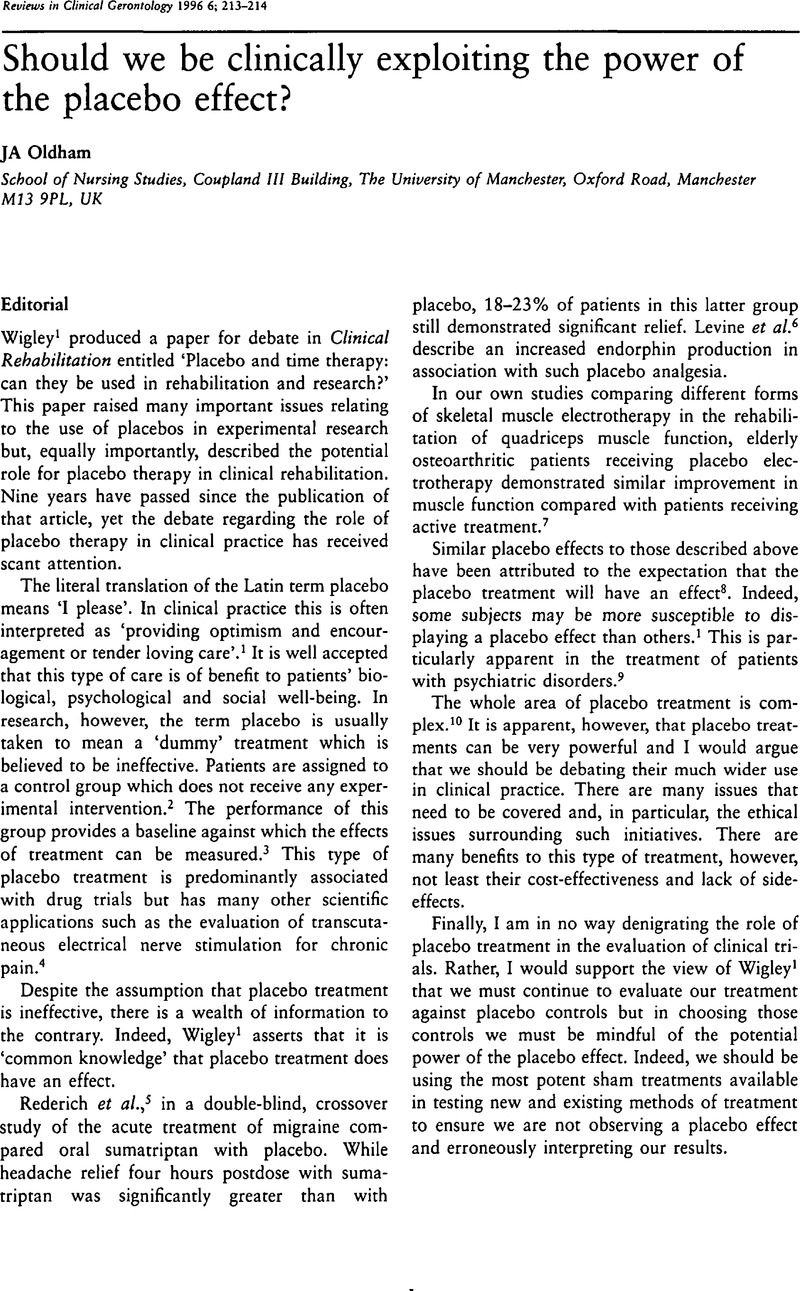Crossref Citations
This article has been cited by the following publications. This list is generated based on data provided by Crossref.
Oldham, Jacqueline A.
and
Howe, Tracey E.
1997.
The effectiveness of placebo muscle stimulation in quadriceps muscle rehabilitation: a preliminary evaluation.
Clinical Effectiveness in Nursing,
Vol. 1,
Issue. 1,
p.
25.



